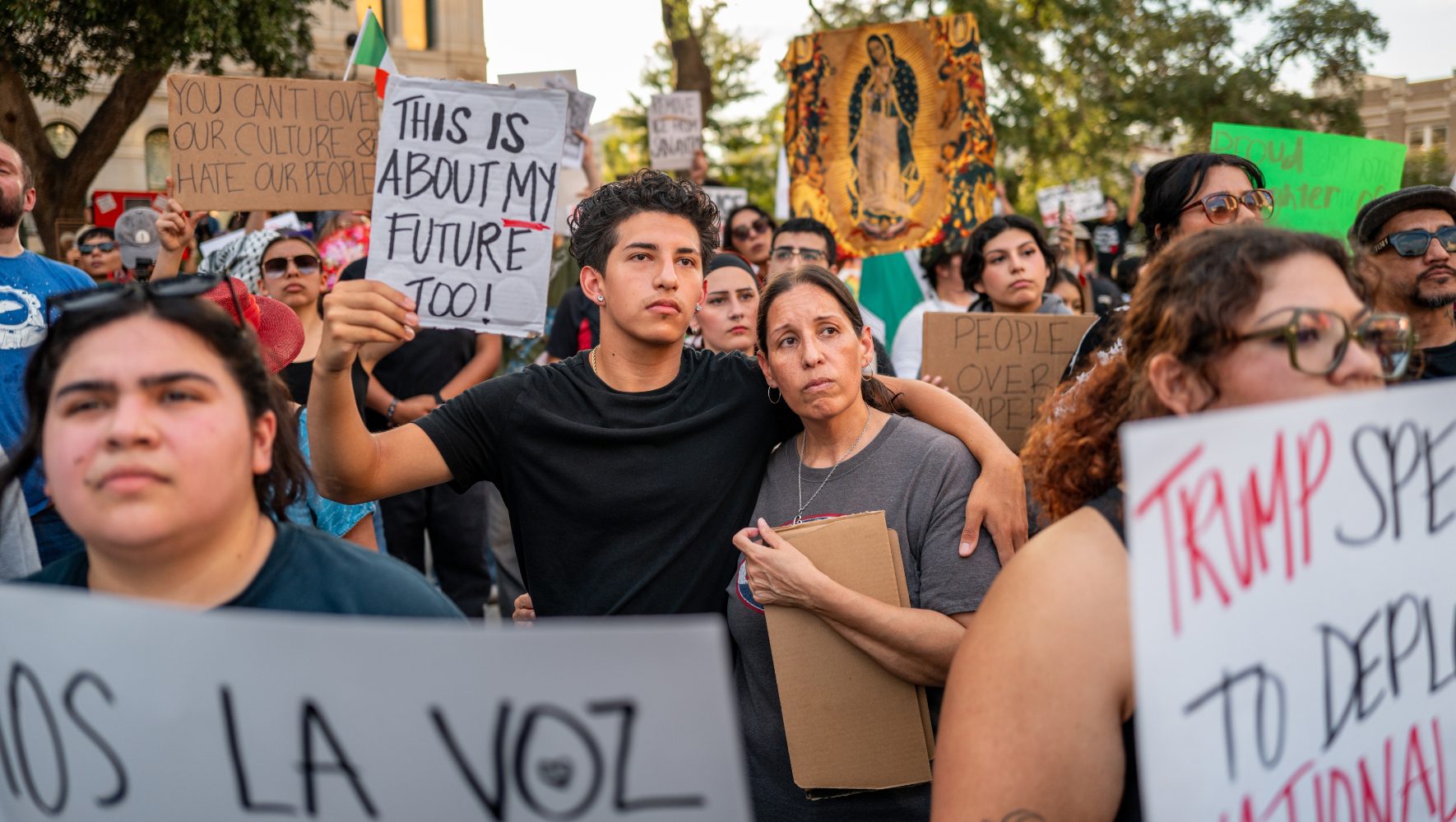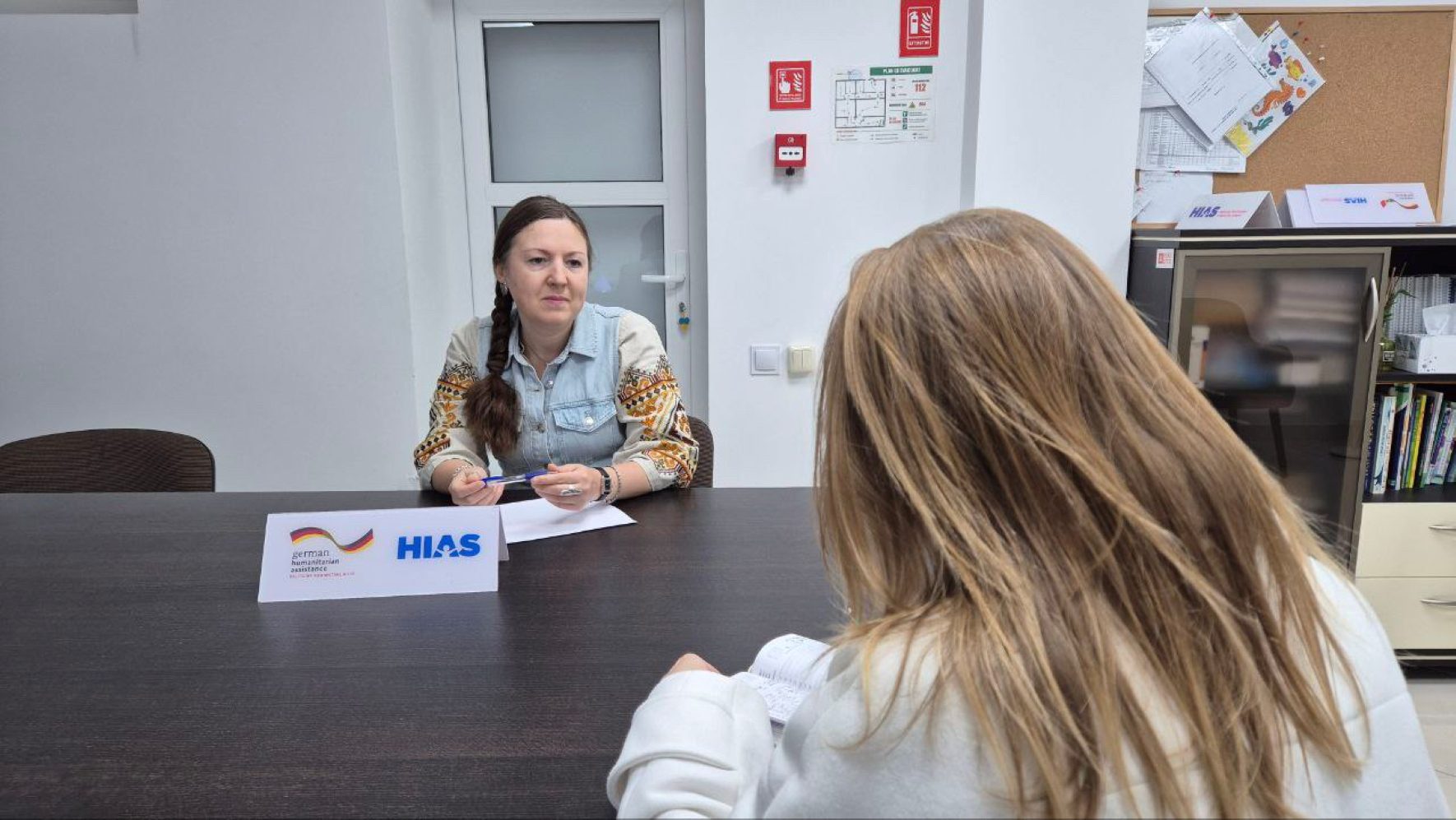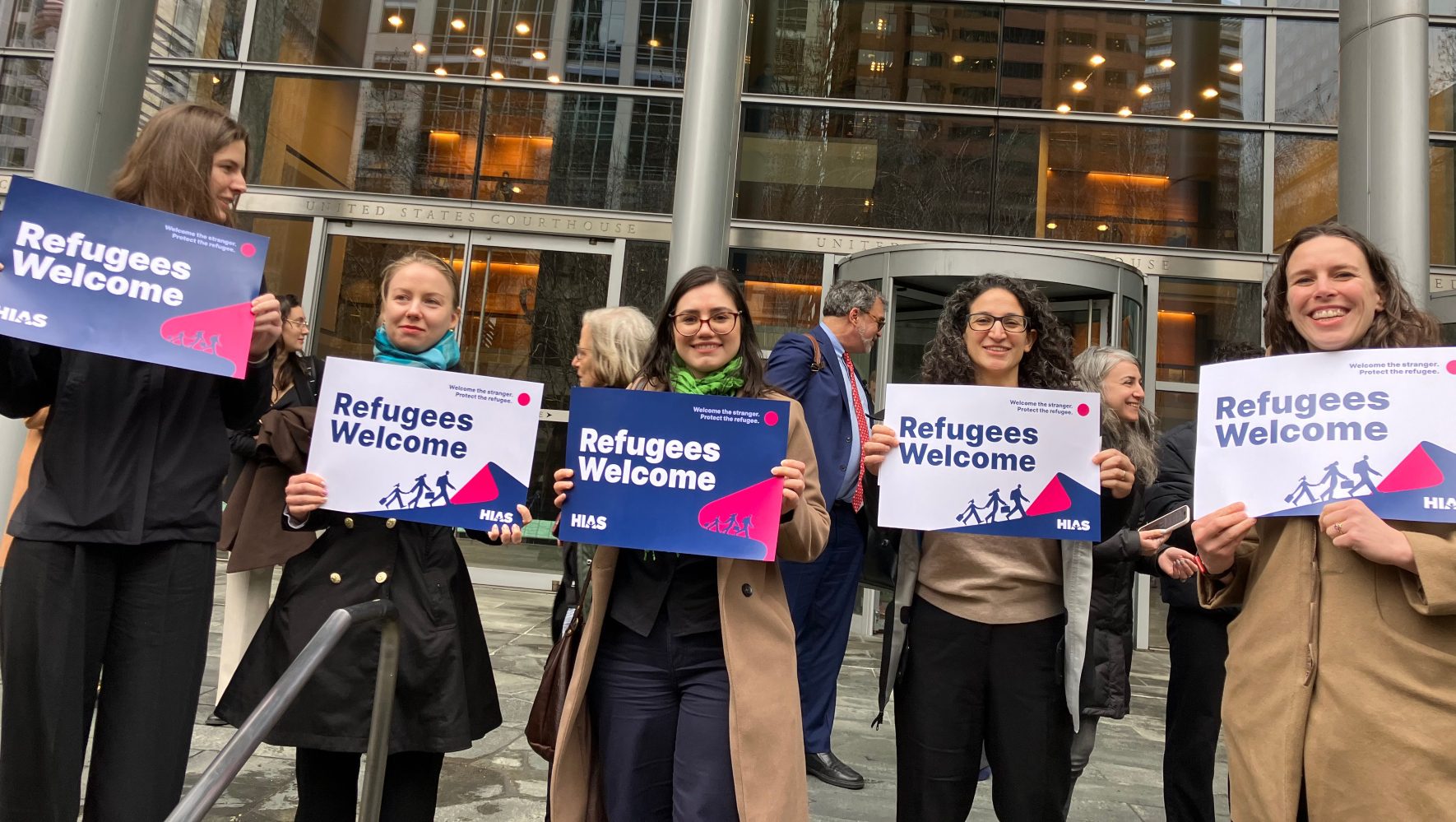CQ Weekly: Q&A with HIAS President and CEO Mark Hetfield
Sep 27, 2015
[[{"fid":"1207","view_mode":"default","fields":{"format":"default","field_file_image_alt_text[und][0][value]":"Mark Hetfield in Congressional Quarterly (CQ)","field_file_image_title_text[und][0][value]":""},"type":"media","attributes":{"alt":"Mark Hetfield in Congressional Quarterly (CQ)","style":"height: 636px; width: 500px; float: right; margin: 5px;","class":"media-element file-default"}}]]
CQ Weekly features a conversation with HIAS President and CEO Mark Hetfield in their September 21, 2015 issue. Some exceprts from that coversation below. You can also read the full story via the link at the bottom of the page.
Q. Why did HIAS shift its focus from Jewish refugees to all refugees?
A. First and foremost be- cause we had the expertise and capacity and there was a need that had to be met. We felt our community had benefited from the refugee system and it was time to pay it forward and do for others what had been done for us. At that point we were focused mainly on East Africa. That was our first purely non-Jewish humanitarian operation.
Q. How did it turn out?
A. It was very successful. We did fill a gap. We affected thousands of lives, people who would not have been resettled. So we became very focused on humanitarian issues. We had always characterized ourselves as an agency that helps Jews and others, but it came to the point where Jews were like 5 percent of the people we were helping.
Now we say we are the American Jewish community’s global refugee agency. We help refugees no matter who they are. We help them not because they’re Jewish but because we’re Jewish.
Q. What should the U.S. be doing?
A. We see this as an opportu- nity for the U.S. to really show some leadership and take a number that is meaningful and that people can take note of. We’re promoting 100,000 — 100,000 Syrians over and above the existing refugee ceiling of 70,000, which includes all nationalities. Even that’s not a huge number compared to what Germany is taking and Europe is taking.
We’re advocating for three things. One, invest real political capital in addressing the root causes of the crisis. Second is to try to see what is pushing people out, and then investing humanitarian aid to address those things. So you don’t have such a strong push factor in Jordan, Turkey and Lebanon, which is where these people are fleeing from. These people are not fleeing from Syria to Europe. This is the second or third time they’ve been displaced. And the third thing is to take a mean- ingful number as we’ve done in the past. But to do that they’re going to have to be creative and think outside the box, just like we’ve done in refugee crises of the past.



